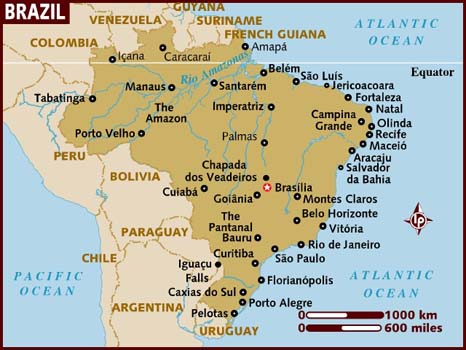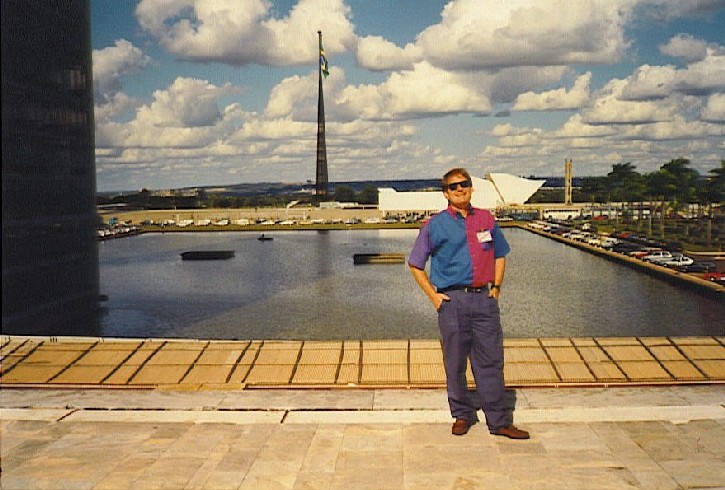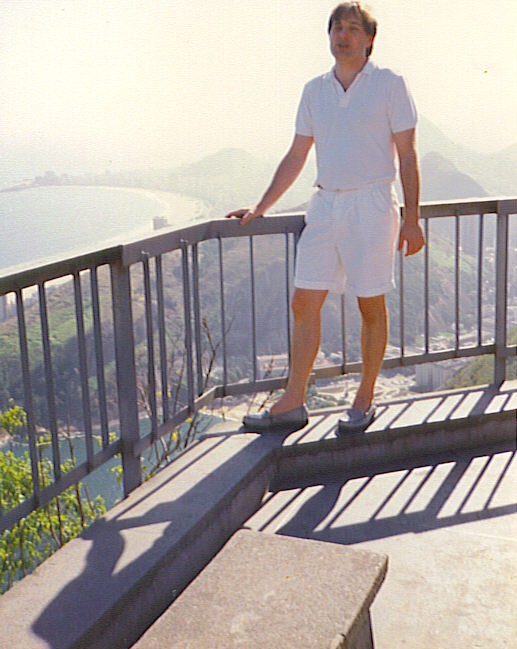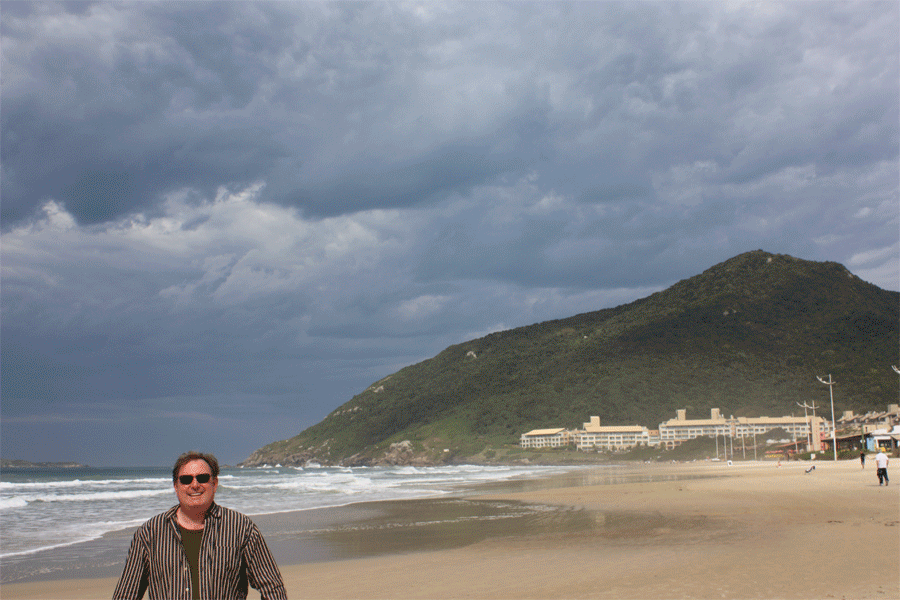Brazil
|
| Leo's homeland,
Brazil, is a nation that I (Gene) believe, may hold
the greatest promise for the future. It is a very
large and beautiful country with vast natural
wonders, friendly people, and a significant number
of natural resources. I have always enjoyed my
travels to Brazil. I have been seven times (1990,
1994, 2004, 2011, 2021, 2022, and 2023) and have
traveled to ten cities (Brasilia, Rio de Janerio,
Sao Paulo, Florianopolis, Guarapari, Goiania,
Manaus, Vitoria, Aracaju, Foz do Iguacu) as well as
the Amazon Rain Forest. We still have a lot more to
see with a trip coming up in the Summer of 2025. |
 |
Brazil’s story begins with as many as 2000 distinct Indigenous peoples who lived across the vast land for thousands of years before Europeans arrived. In 1500, Portuguese explorer Pedro Álvares Cabral landed on the coast and claimed the territory for Portugal. The name “Brazil” comes from pau-brasil, a valuable redwood tree the Portuguese exported. Over time, Brazil became a major colony built on sugarcane, gold, and eventually coffee—powered by the brutal exploitation of enslaved Africans, who have deeply shaped the nation’s culture. In 1822, Brazil broke from Portugal and became an independent empire under Dom Pedro I, who abdicated his throne to his 5 year old son Dom Pedro II, nine years later. Brazil eventually transitioned to a republic controlled by a small elite in 1889, abolishing slavery just one year earlier in 1888—one of the last countries in the world to do so. The 20th century brought waves of political change, including the dictatorship of Getulio Vargas from (1937-1945) who himself was elected democratically in 1951, a military dictatorship (1964–1985) and then genuine democracy under Fernando Collor de Mello in 1989 . Today, Brazil is an increasingly important nation internationally. This vibrant mix of cultures, languages, and traditions is a country of deep contrasts and incredible resilience, known for its music, many festivals, natural beauty, and complex history. |
 |

Brasilia 1994


(14 years later in the same location) Rio De Janeiro 1990 and 2004

Iguazu Falls 2004

Rio de Janiero 2004

The Amazon Jungle 2004

Images from Brazil 2011 - Florianopolis and Guarapari

Brasilia Summers of 2021 - 2022 - 2023


